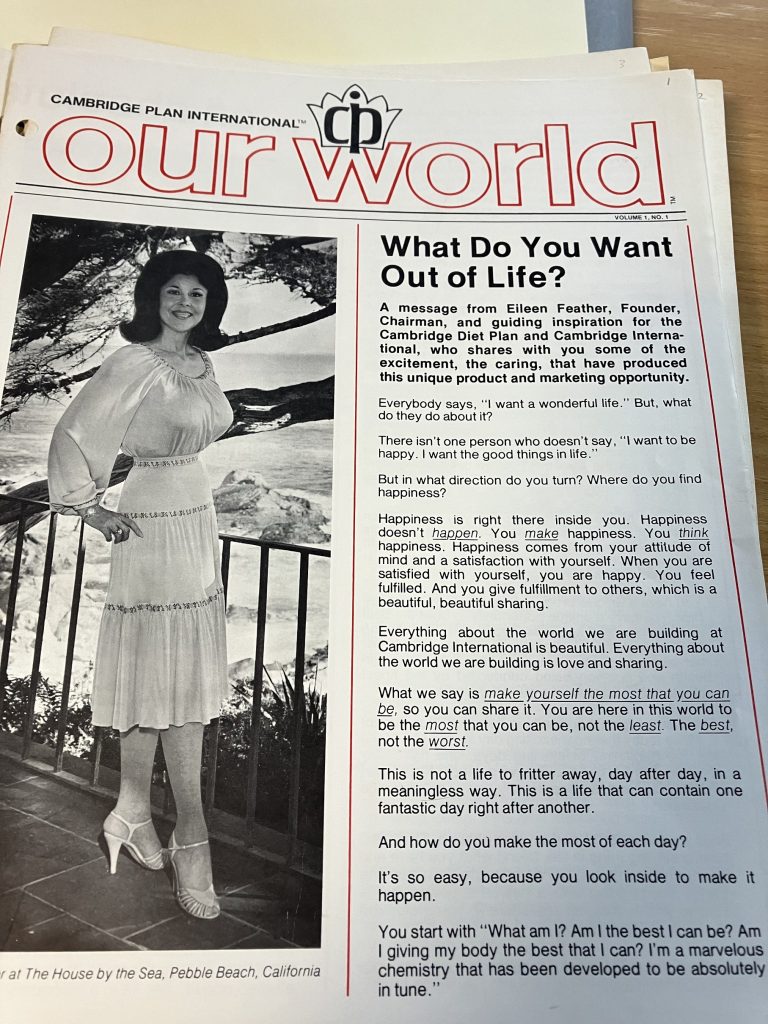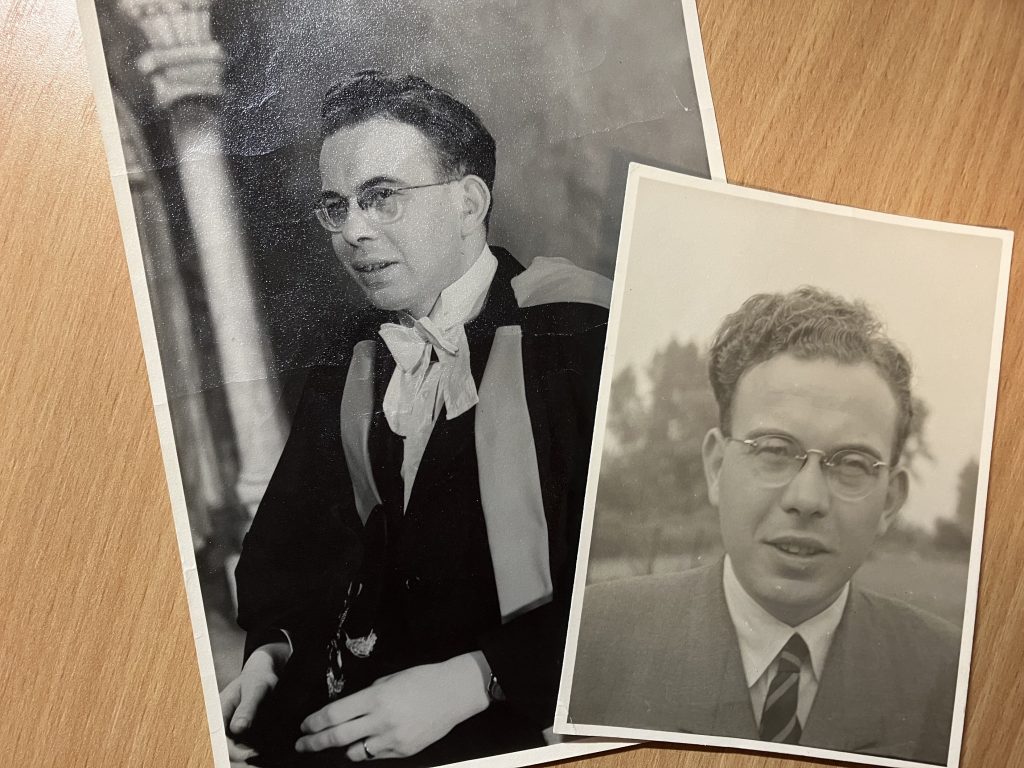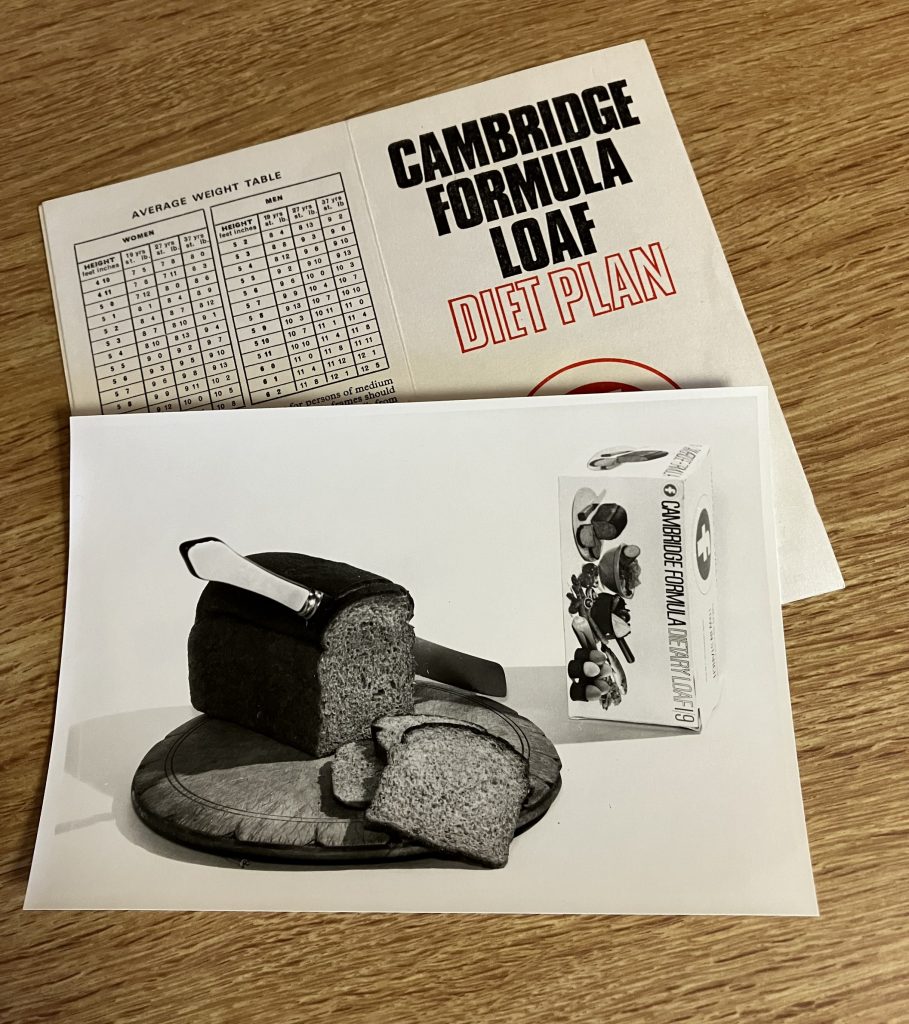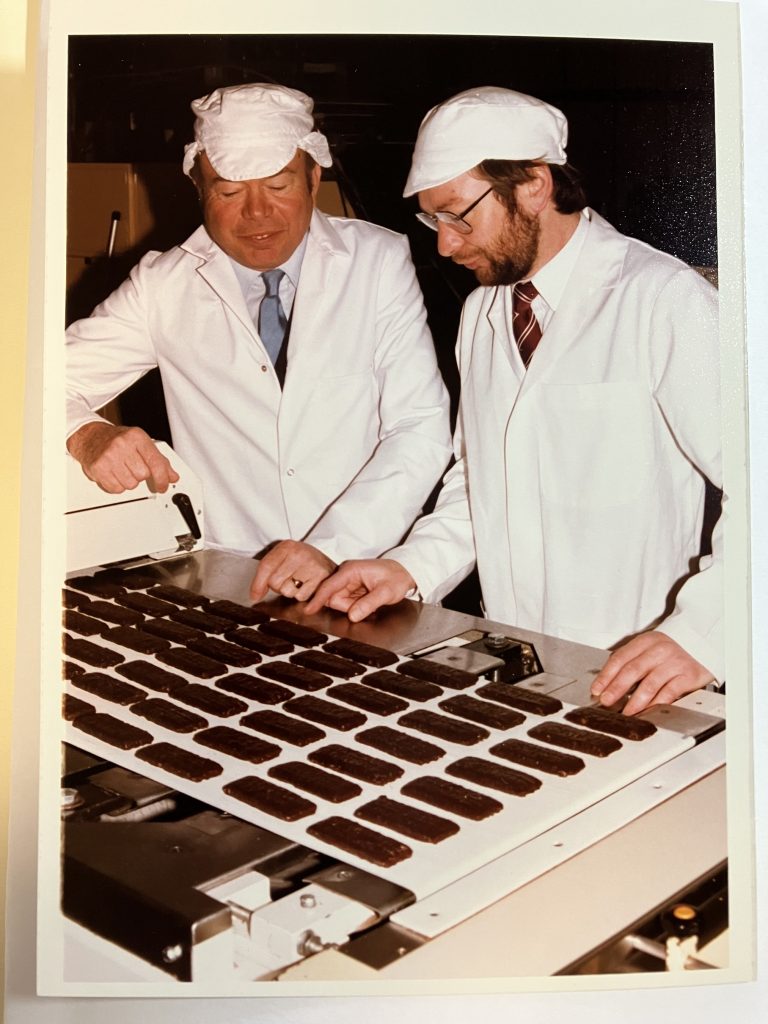
Alan Howard and the Howard Foundation
Post by Sam Evans (Assistant Archivist, Archives & Modern Manuscripts)
I recently finished cataloguing the records of Alan Howard (1929-2020), the inventor of the Cambridge Diet (CUL MS Add.10931). The papers were donated to the University Library by Alan Howard’s son, Jonathan Howard, and deposited at the end of 2021. The records, which now fill seventeen archive boxes, constitute Alan Howard’s personal archive, including documents kept for his own use. This offers researchers access to significant aspects of Howard’s life as a scientist, entrepreneur, and philanthropist in a manageable volume of papers.
A telling anecdote about Howard was provided by a typewritten note from the year 2000 by Leslie Brown, Howard’s Latin teacher at his school in Norwich (MS Add.10391/B/2). As a schoolboy, Howard had to learn enough Latin to pass an examination as part of the entrance requirements for Cambridge University. Brown wrote of finding Howard in the physics laboratory, ‘working alone, industrially [sic], at the far end of the lab … totally engrossed in what he was doing. Maths? Physics? No, his Littlewoods football pools coupon. … He assured me that he was making a profit. I forget whether it was the headmaster’s joke or Howard’s that he went up to Cambridge on Littlewoods’ scholarship.’ (Littlewoods was the company that ran the football pools.) The story encapsulates the perception of Howard as an industrious scientist with an entrepreneurial approach to life.
Howard trained as an organic chemist but developed an interest in medicine while doing his PhD in immunology. He then spent seven years at the Dunn Nutritional Laboratory in Cambridge. (The archives of this laboratory, later named the Elsie Widdowson Laboratory, are also preserved in the University Library). From 1960, his two main areas of research were heart disease and obesity. In 1965 he developed the ‘Cambridge loaf’, a high-protein bread marketed to slimmers.
From 1970 he worked on very low calorie diets, developing the Cambridge Diet, which was sold at first in the US and later in the UK and Europe via multi-level marketing (recruiting teams of salespeople who sold the product within their own social networks, receiving a percentage of the value of sales).

Howard travelled widely to scientific conferences and helped establish the Association for the Study of Obesity. In 1982, funds from the sale of the Cambridge Diet in the US were used to set up the Howard Foundation, which funded medical research and contributed to philanthropic causes, including new buildings at Downing College, Cambridge, where Howard had been an undergraduate. Howard continued to take an interest in nutritional research, including red wine and green tea polyphenols, trace elements, atherosclerosis and age-related macular degeneration.
Howard’s low-calorie diet was regularly challenged by doctors and the archive contains many newspaper clippings, including from the popular press, reflecting reactions to the diet. There are also many typescripts of talks delivered by Howard to a variety of audiences to explain and defend his research and his business. The archive is a rich source not only for biographical detail about Alan Howard, but for business practices, marketing, and international perspectives on health, nutrition, and medicine in the second half of the twentieth century and beyond, not to mention the complex interrelationships between research and commerce.



